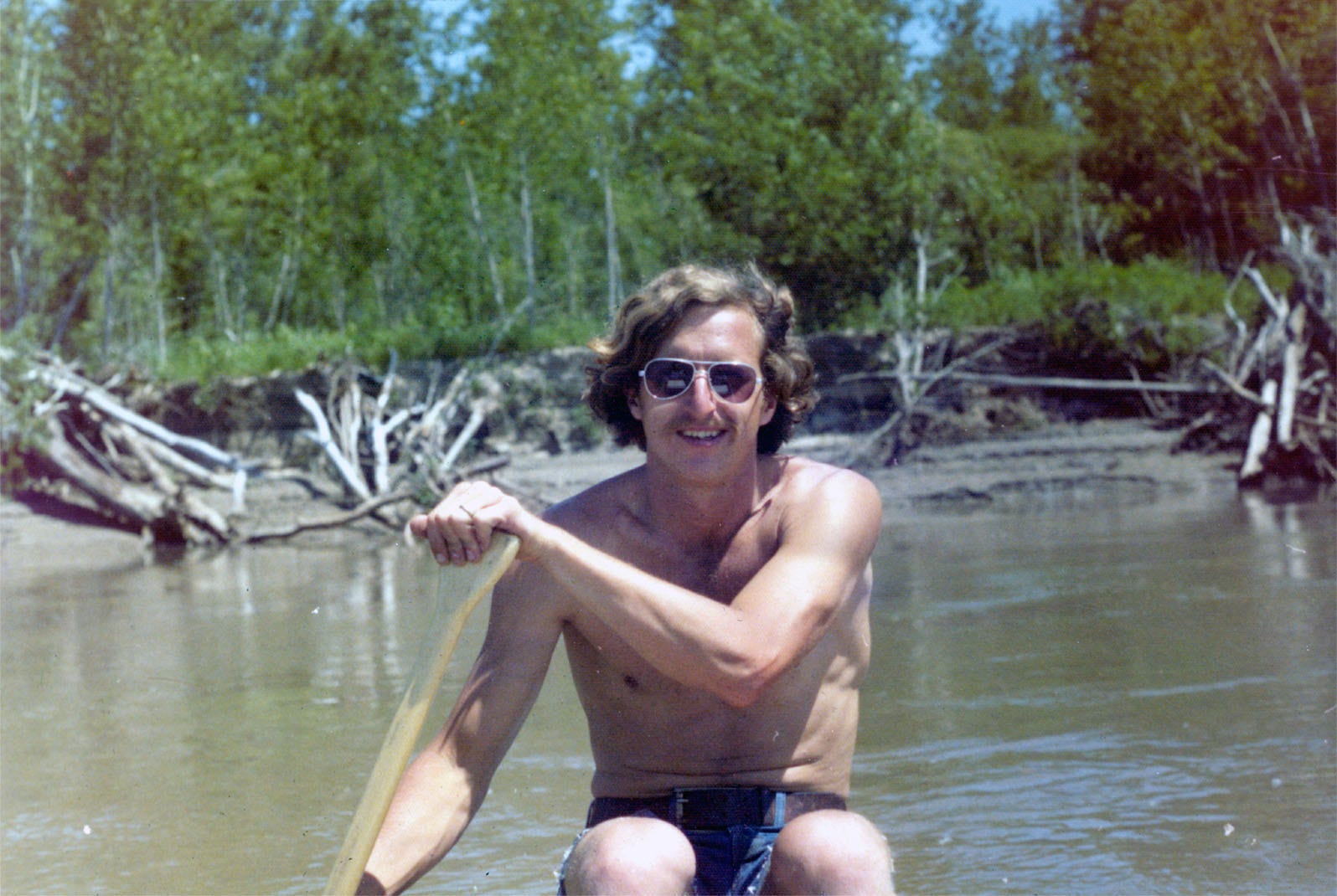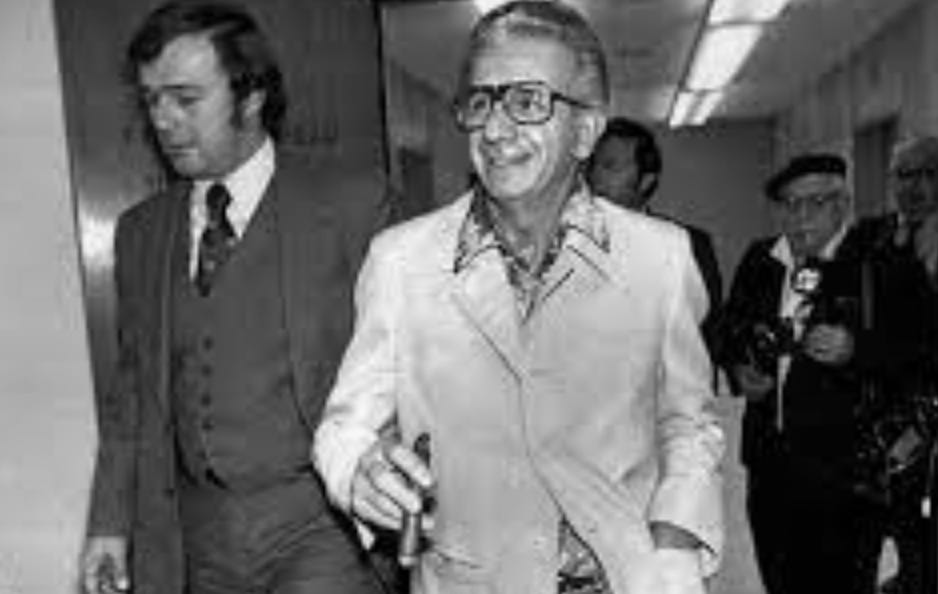Over the years, I shared various ways in which my parents intentionally worked to develop me into a constructive person. Often, because my mother was the primary disciplinarian, she has gotten the short end of the stick because most of my stories about her involve being the enforcer of the law. Yet, Claudette was the drill sergeant who was determined to prepare her child for a war in which I was armed to wrestle with the ghostly demons who desired to manifest their supremacy in flesh and blood.
Culturewatch
Bet
“With your first experience in Vegas — what did you think?”
“On earth, it’s probably the closest thing to a dystopia.” – Victor Wembanyama 😂 pic.twitter.com/PoJRveKG3w
— Evan Abrams (@EvanHAbrams) December 29, 2023
H/T Thomas Beller.
2024: The Body Politic on Steroids
[01-01-2024] In light of the upcoming election year, the U.S. Food and Drug Administration (FDA) has approved class-wide labeling changes for all prescription testosterone products, adding a new Warning and updating the Abuse and Dependence section to include new safety information from published literature and case reports regarding the risks associated with abuse and dependence of testosterone and other AAS.
Appointment in Newark
Brick City Grudge Match is a tough-sounding, gritty title for a boxing book, especially when the subtitle is Tony Zale and Rocky Graziano Battle in Newark, 1948.
Peter Linebaugh’s “Great Act of Historical Imagination”*
“A commonist manifesto for the 21st Century…”
High praise for Peter Linebaugh’s 2014 collection of essays, Stop, Thief!: The Commons, Enclosures, and Resistance, went right by me. I missed the book when it came out and only grabbed it last month to pass time on the subway. My commutes went FAST! Though I didn’t ride the book into the ground. I savored the essay “Meandering at the Crossroads of the Commons and Communism” with a Negroni at an Upper West Side joint that does a damn good job of cultivating commons. (Fam style Italian dishes bring in big parties — happy b-day sung every 15 minutes…) A meet spot to muse with Linebaugh even if dollarism is in the equation. I finished his book as I rolled around the city gathering Thanksgiving provisions. A perfect read in the run-up to a fam-and-friends fête. I’m sure you’d’ve been swept away too as Linebaugh limns (with a feeling) one-for-all-all-for-one struggles to preserve people’s rights and resist privateers and hierarchs.
The late Mike Davis’s summative graph is on point:
From Thomas Paine to the Luddites, from Karl Marx to the practical dreamer William Morris, who advocated communizing industry and agriculture, to the twentieth-century communist historian E.P. Thompson, Linebaugh brings to life the vital “commonist” tradition. He traces the red threat from the great revolt of commoners in 1381 to the enclosures of Ireland, and the American commons, where European immigrants who had been expelled from their commons met the immense commons of the native peoples and the underground African American urban commons. Illuminating these struggles in this indispensable collection, Linebaugh reignites the ancient cry, “Stop, Thief!”
Planet X
..Still, there’s the desire to fuck.
..There’s morning cigarettes.
..There’s the sun, post-orgasmic, after the death of all superstructures and erections. The shade cum sliding down her thigh earth night secret smile sleep dark no dream
..Pearls and scars
..A few more good poems to read, fewer still to write.
..The collapse of empires, master races, meta narratives, ethical sadomasochisms, bourgeois psychology, teleology of hope.
..There’s no need to rebuild anything.
The terrible option

My brother Frank
If you’ve known someone who died by their own hand, you walk around for the rest of your life with a question mark so real, you can see it with your eyes and feel it on your skin. Why? What drove them to do it? Even though people commit suicide all the time, no one wants to confront that darkness or our resentment that they have left us with the terrible knowledge that death is not just a reality, it’s an option.
I’ve known several people who have taken their own lives, but the two I miss most dearly are my brother, Frank, and my friend the folksinger, Phil Ochs. They were very different people, and their suicides were very different.
Jumpin’ Johnnie: The Posthumous Interview
I dreamed I saw Johnnie Green (the NBA veteran who started out with the Knicks, and died last week) last night, alive as you or me.
Dreamer: Man, could you leap! Miss the bus to Heaven, you can get there on your own. Like Gus Johnson told Sports Illustrated about his storied leaping ability: “I just say ‘legs, jump,’ and they say ‘How high, Boss?’” I first saw you play against Walter Bellamy in 1957 when you were a senior at Michigan State, and Big Bells was just a soph at Indiana.
The Most Interesting
After Marilyn told Adele that she and Grif were packing winter clothes for the Buddhist retreat in New Mexico, Adele asked me if New Mexico wasn’t hot.
“They have mountains,” I said, “and mountains have snow.”
“Do all mountains have snow?”
“Come to think of it, why should any mountains have snow? Aren’t they closer to the sun? Shouldn’t deserts have the snow?”
“When you’re at the café, ask Fran.”
Besides being an licensed electrician, free jazz musician on instruments of his own creation, reader of the most daunting Oulipo works, and maker of art postcards based on mathematical calculations that he sends family, friends, waitresses, and people he meets in cafes. (I have three), Fran is the kind of guy you can ask about mountains and snow. He was answering my question through improvisations on planetary rotation, wind direction, reflection of light, absorption of heat, when I noticed a dark-haired, 60ish woman at the next table, who had been making notes in a spiral bound pad, turn more and more toward us.
The Witnesses (Formerly “Black Dialectics”)
This post originally had a second half, which I’ve now restored since I got a “hard yes” from my final witness who agreed to join the conversation (anonymously)…
Ta-Nehisi Coates opened this Q&A by denouncing what he regards as cant about the complexity of the conflict between Israelis and Arabs. His argument had force. How can Americans — particularly those who identify with black people’s struggles for civil rights — support a country that’s waging war to sustain a status quo founded on “segregation”? There’s something fine and (small d) democratic in Coates’ determination to dump the idea that only PhDs in Middle Eastern Studies have the wit to comment on the horrors Over There. His will to keep it simple seemed admirable. Yet there was an odd avoidant turn in Coates’ testimony when he addressed Martin Luther King’s legacy.
Heroes Are Gang Leaders
Robert’s Chametzky’s thoughts on Adorno’s famous line (here) reminded your editor that it was past time to post Baraka’s unassimilable story (first published in the 60s), which seems more punctual than ever…B.D.
My concerns are not centered on people. But in reflection, people cause the ironic tone they take. If I think through theories of government or prose, the words are sound, the feelings real, but useless unless people can carry them. Attack them, or celebrate them. Useless in the world, at least. Though to my own way of moving, it makes no ultimate difference. I’ll do pretty much what I would have done. Even though people change me: sometimes bring me out of myself, to confront them, or embrace them. I spit in a man’s face once in a bar who had just taught me something very significant about the socio-cultural structure of America, and the West. But the act of teaching is usually casual. That is, you can pick up God knows what from God knows who.
Sitting in a hospital bed on First Avenue trying to read, and being fanned by stifling breezes off the dirty river. Ford Madox Ford was telling me something, and this a formal act of· teaching. The didactic tone of No More Parades. Teaching. Telling. Pointing out. And very fine and real in its delineations, but causing finally a kind of super-sophisticated hero worship. So we move from Tarzan to Christopher Tietjens, but the concerns are still heroism.
Barbarism and Culture
The author responded to recent poems in First and then went further with his thoughts…
“I’m on the side . . .
[of] the ones used as messages . . .
of those whose deaths are part of an estimated number . . . ”
Oh my, oh my — what to do with (lines from) poems such as this, and those by Alison Stone…Such good lines/poems — are we allowed to admire them, as well as being moved, being led to reflect, to sympathize, to cry? Might there not be something just a bit off in such admiration? But if so, then why have poems at all? Which, inevitably (for some) leads to . . . Adorno:
Abyss (whatever the fuck that is…)
Intifada
“They can very well try to find each other; they will never find anything but parodic images, and they will fall asleep as empty as mirrors.”
..A miserable day spent in bed: our dying intimacy, receding from one another in time until all that’s left is a kind of crackling: for me it’s a mute interstellar scream, for her it’s the exhaustion of having to intuit and care for that scream, its silence, though I try my best for it to go nowhere, absolutely nowhere…
Better than “Heaven”
Songs on the new Stones album might rev me up down the line, but I was put off by early hosannahs for the faux-gospel “Sweet Sounds of Heaven” which features Lady Gaga and Stevie Wonder. Compare “Heaven” with live collabs between Stevie and the Stones from 1972, when they’d mash up “Uptight” and “Satisfaction.” (You can watch here — check Mick and Stevie’s dance — now that’s a throwback!)
Two Formicating Junkies
Joey, a guy I knew, used to call every month or so. He hardly ever had an agenda. No, “Can we…” or “What do you think about….” or anything like that. It was just to talk for a while, checking in, letting me and maybe himself know that he was still around.
And now for something a bit lighter: The great Garfinkel’s caper
If this were a perfect world, to be a boy and 18-years-old would be banned, or somehow made illegal, anyway. I say this from experience, some of which is outlined in this story.
It was the early winter of 1964 in the suburbs of Washington, D.C. when I and three friends, who were all long on energy and short on some essential brain cells, decided it would be a fantastic idea to pull off the greatest shoplifting caper in our young lives.
“There wasn’t any funeral,” Jimmy the Weasel says, “We buried him.”

There was a time in my life, back when I was in my thirties when I was a crime reporter. Perhaps you are familiar with them from the movies: they are always two steps ahead of the cops, they put their lives at risk, and they are awakened at their crummy apartment at 6 a.m. by the lead detective, with whom they were in the army.
“Got anything to drink in this dump?”, the detective says.
Then the detective and the reporter toss back a scotch and the reporter does not worry one bit about not having any cheese or nuts in the house to go with it.
This was never me. It violated Wadler’s first and most important rule of journalism: Never put yourself in a situation in which people might shoot at you.